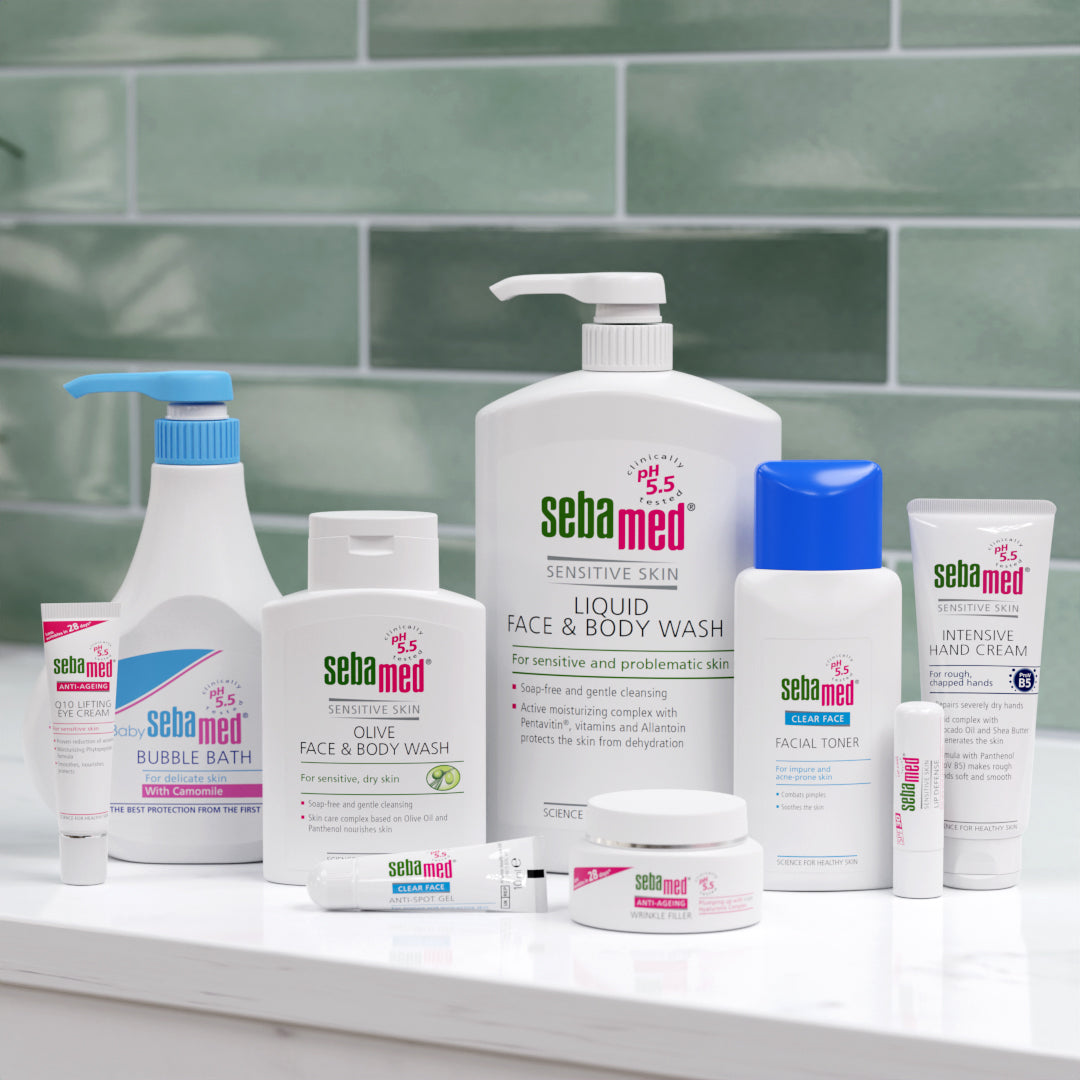When we think about skincare, we automatically think of moisturisers, serums and cleansers - but the truth is, skincare starts long before what you put on your face. Diet and skincare are very closely linked, and what you eat can be just as important as what you apply on your face. While some foods can feed your skin with healthy nutrients, others, including injections to reduce weight-loss can cause inflammation and acne, or even premature ageing, dryness, redness and irritation.
Here are four surprising ways diet can impact your skin.
Excess sugar can speed up skin ageing
Sugar may feel like a harmless treat, but that’s not always how your skin feels. Eating too much sugar causes a process called glycation - which means the sugar binds to important proteins like collagen and elastic, that are designed to help keep your skin firm and supple. When these two proteins are damaged, it can lead to premature ageing, sagging skin, wrinkles, dryness and a dull complexion. Glycation is an important factor in diet and skin health, especially in people with poorly managed blood sugar levels, like those with diabetes.
Sugar can affect your skin in lots of different ways, such as;
-
Wrinkles & fine lines: Glycation damages two important proteins; collagen and elastin. This can lead to premature ageing and fine lines and wrinkles.
-
Loss of elasticity: Sugar also weakens collagen and elastic, causing the skin to lose elasticity which leads to less supple skin.
-
Uneven skin: Sugar can trigger inflammation in the body, which may cause redness, blotching, or an uneven complexion.
-
Dullness: As glycation can prevent the skin from repairing itself, it can lose its natural glow and look dull and tired.
- Dryness & tightness: Damaged proteins also struggle to retain moisture, which can leave the skin feeling dry, tight and dehydrated.
Fast weight loss can lead to sagging skin
If you’re using weight-loss injections or following an intense weight-loss diet, your skin might not be able to keep up with the sudden changes. Rapid weight loss can sometimes lead to noticeable face changes, which social media have recently dubbed ‘Ozempic face’ leading to a loss of facial fat and collagen which can make the face appear gaunt. If collagen and elastic are also weakened by age, sugar, excess sun exposure or poor diet, then skin health will be affected and the skin might not bounce back as quickly.
You might also experience;
- Dullness or tired looking skin
- Slower skin repair
- Premature ageing
- More noticeable wrinkles or fine lines
What to do about it?
If you are on weight-loss injections or following an intense diet, make sure to;
- Eat lots of protein to help prevent muscle loss
- Protect your skin with daily sunscreen
- Drink water to keep the body hydrated
- Use skincare products that encourage the production of collagen to reduce wrinkles and sagging.
Some unexpected foods can boost your skin glow naturally
When we think of foods that are beneficial for skin-health, we usually think of diets rich in avocados, nuts or oily fish, but there are lots of other options that can work well for your skin. Diets that contain collagen, reduce inflammation, balance hormones and even improve hydration are really good for skin health - here are some surprising foods you can add to your diet that promote healthy skin;
- Sauerkraut - this probiotic is full of healthy nutrients for good gut and skin health.
- Pumpkin seeds - packed with zinc which is a nutrient that can help control breakouts.
- Brazil nuts - a powerful source of selenium for regeneration of skin cells.
- Kiwi - high in vitamin C which can help boost collagen and brighten skin.
- Sweet potatoes - high in beta-carotene which can protect and nourish skin.
- Bone broth - rich in natural collagen and amino acids for elasticity.
- Dark chocolate - rich in antioxidants that help fight free radical damage.
- Green tea - calms inflammation and reduces acne.
- Coconut water - hydrates skin and reduces puffiness.
-
Lemons - detoxifies the body which can cause clearer skin.
Inflammation from processed foods can trigger acne
Highly processed foods, like crisps, fast food, sugary snacks and fizzy drinks are often full of ingredients and excess sugar that can cause inflammation and acne. When your body is inflamed, it can show up in your skin, like premature aging. Here’s how inflammation shows up in your skin;
- Breakouts and acne flare-ups - inflammation can increase oil production causing clogged pores.
- Redness and blotchiness - irritated skin can often appear red and uneven in skin tone.
- Puffiness or swelling can happen around the eyes or jawline.
- Dry or sensitive skin - inflammation damages the skin barrier, leading to dry or sensitive skin.
- Slower healing - blemishes, cuts or rashes may take longer to heal.
- Dullness - chronic inflammation can show up as dull looking skin.
- Worsening of existing conditions - like eczema, rosacea, or psoriasis.
- Premature ageing - fine lines and wrinkles can show up more easily.
What to do about it?
There are a few things you can add to your diet to boost skin health if you are fighting inflammation in the body.
- Reduce inflammatory foods, like sugar, processed snacks and fizzy drinks,
- Replace with anti-inflammatory foods, such as berries, leafy greens, fish, turmeric and nuts.
- Stay hydrated - make sure to drink water throughout the day to help the skin flush out toxins and maintain a healthy skin barrier.
- Manage stress - stress can be a significant trigger for skin inflammation so lowering stress levels may see an improvement in skin health.
- Get enough sleep - as poor sleep can also worsen inflammation.
- Use gentle skincare products that match the pH levels of the skin and support the skin’s natural skin barrier without stripping it.






